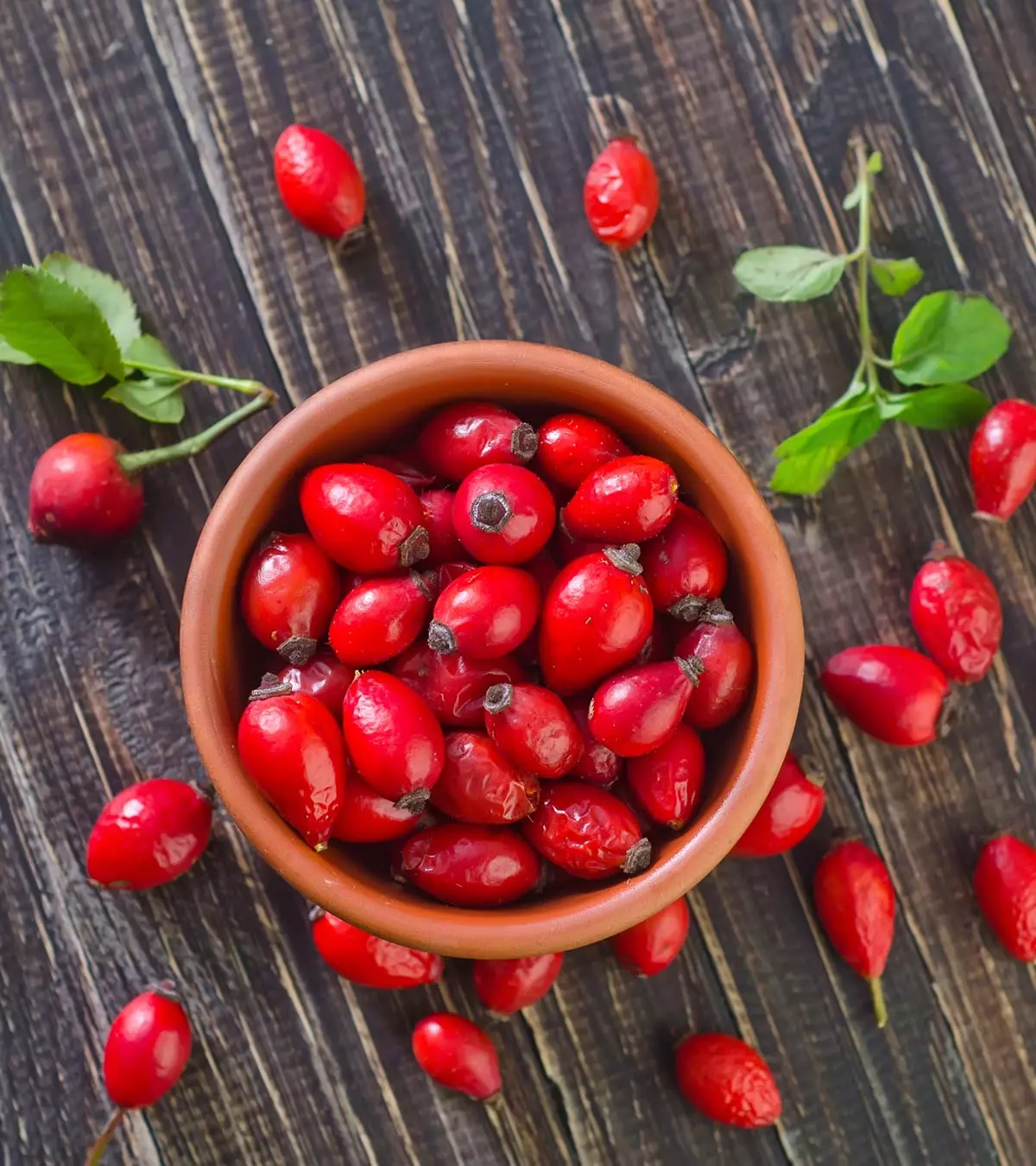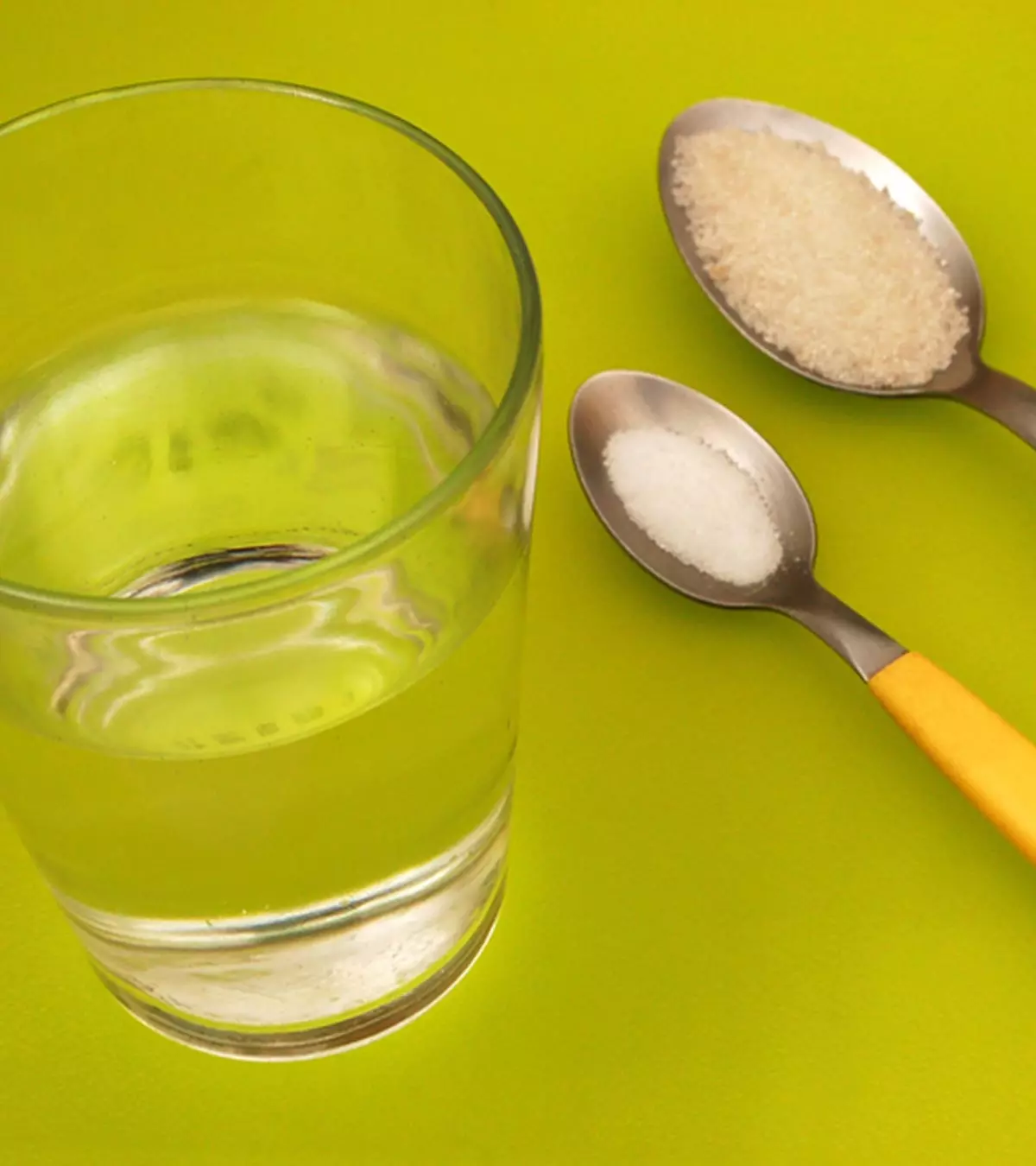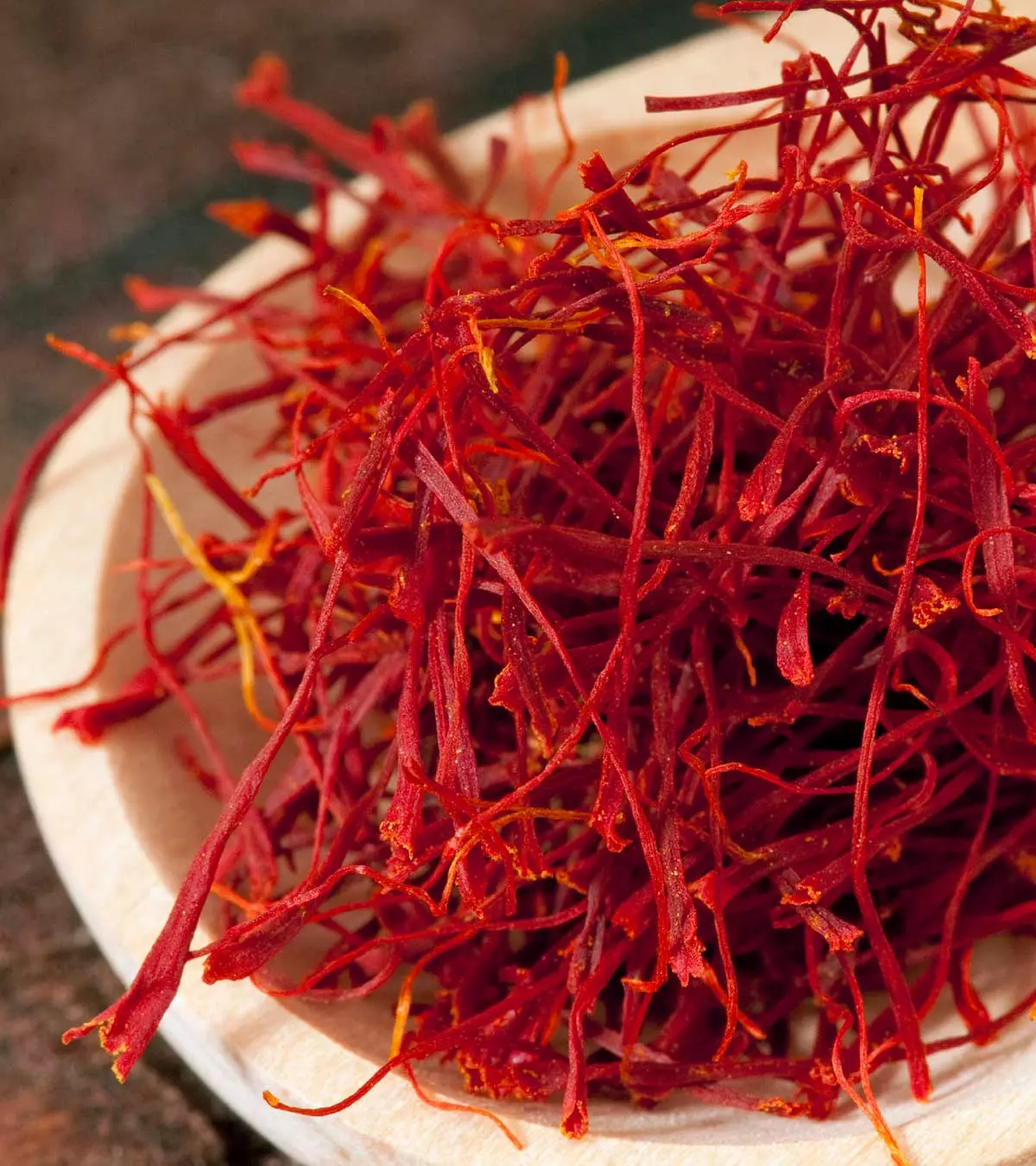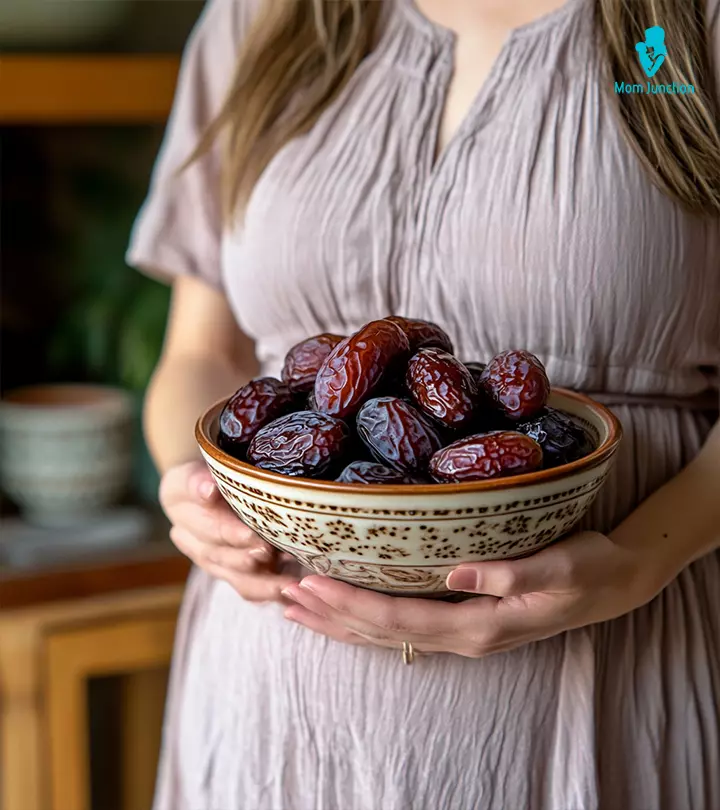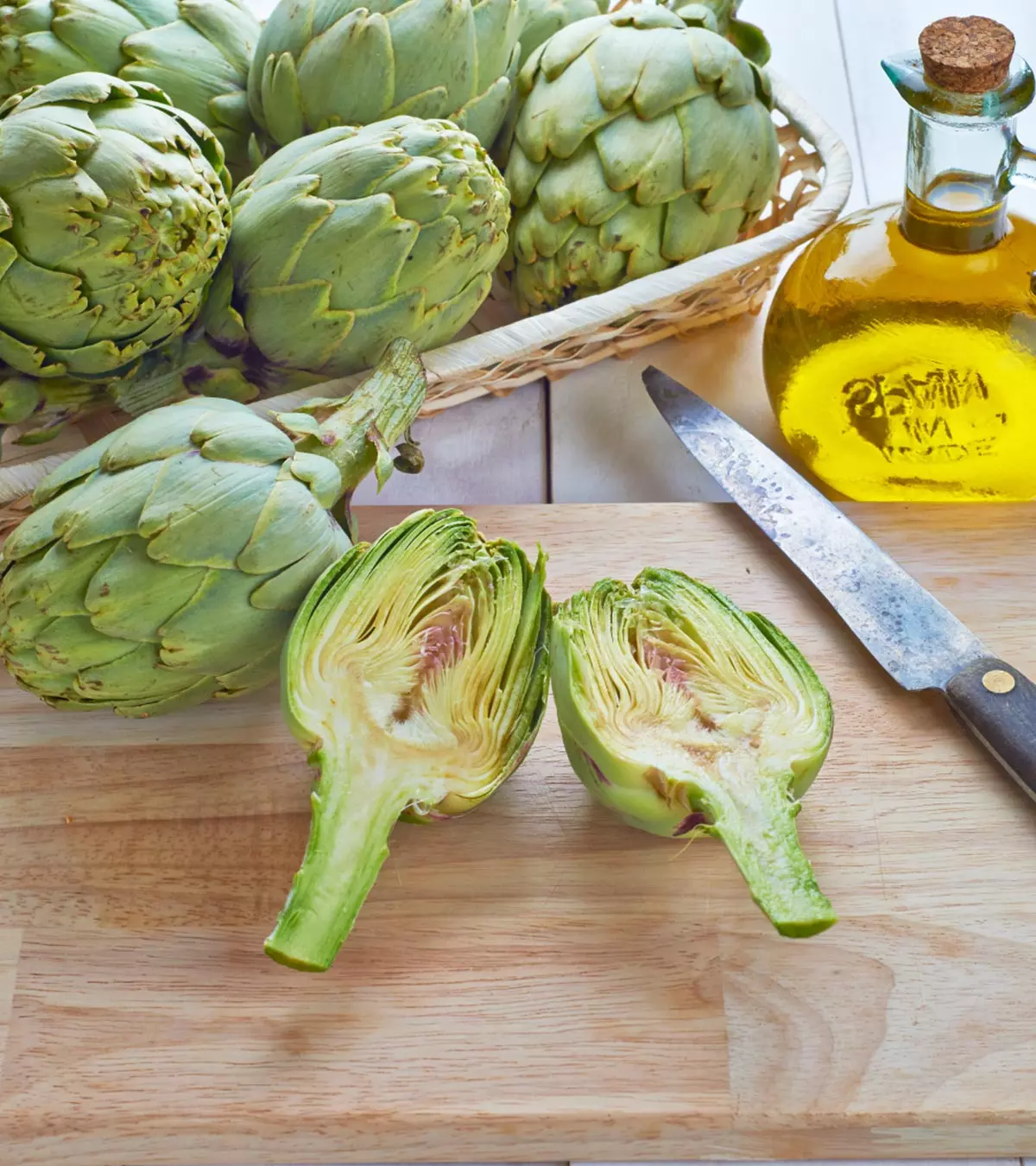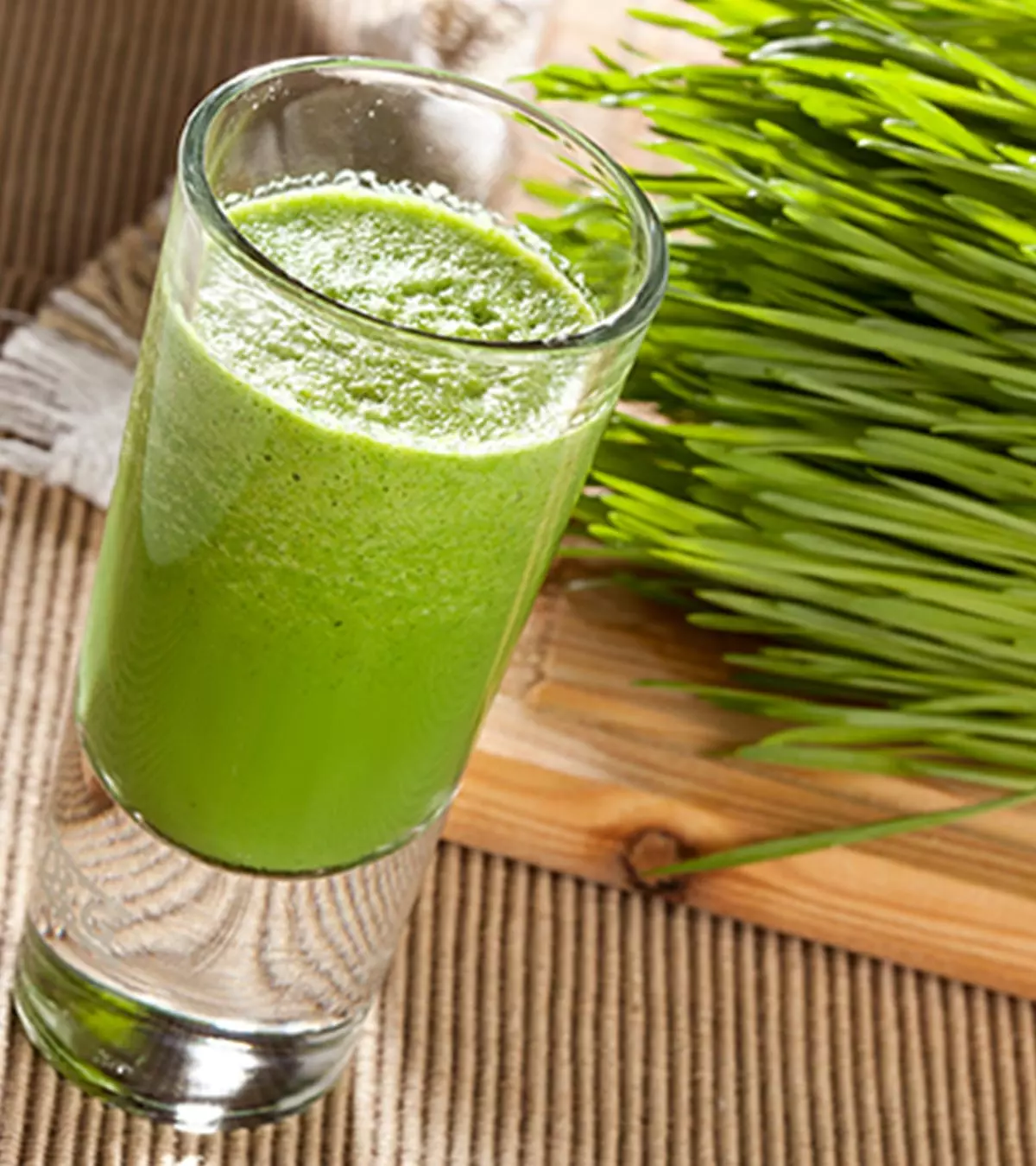
Wheatgrass is a nutrient-rich food that helps relieve the symptoms of many health conditions. However, many women may be apprehensive about consuming wheatgrass during pregnancy fearing allergic reactions if taken in greater quantities and the risk of infections when taken raw.
That said, taking small quantities of wheatgrass during pregnancy does not cause any side effects to the growing fetus. However, before its consumption, it is important to seek medical advice. Read on to know more about the benefits and side effects of wheatgrass on pregnant women and the precautions you must take when consuming it.
Key Pointers
- Wheatgrass is a highly nutritious food packed with antioxidants, vitamins, and minerals.
- While small doses of wheatgrass may not be harmful, it’s advisable to seek your doctor’s approval before consuming it during pregnancy.
- The benefits of wheatgrass consumption include improved blood circulation, relief from stomach problems, and enhanced immunity.
- Excessive use of wheatgrass may result in side effects such as nausea, headaches, and allergies.
What Is Wheatgrass?

Image: IStock
The nutrient-rich wheatgrass belongs to the wheat family. Many pharmacies sell wheatgrass as plant-based dietary supplements in the form of capsules, tablets, and liquid extracts. Wheatgrass is rich in nutrients magnesium, iron, calcium, Vitamin A, Vitamin E, Vitamin C, and essential amino acids.
Wheatgrass kills harmful bacteria in your digestive system and flushes toxic waste from your body. Wheatgrass can provide relief for conditions like constipation, diabetes, cancer, joint pain, ulcerative colitisiA chronic autoimmune disorder that causes pain, inflammation, and bleeding in the rectal region , and anemiaiA condition characterized by reduced levels of red blood cells and hemoglobin in the body (1) (2).
Is It Safe To Eat Wheatgrass During Pregnancy?

Image: Shutterstock
Though a little wheatgrass causes no harm to your growing fetus, you should refrain from eating an excess of it during pregnancy (3). Wheatgrass may induce severe headaches, nausea, and swelling of the throat.
Wheat grass grows in the soil, and it is consumed raw. So, your chances of catching an infection only increase, with the contaminated mold or bacteria present in the grass. Moreover, if you suffer from grass allergy, gluten intolerance, or celiac diseaseiAn autoimmune condition where the consumption of gluten causes health issues such as diarrhea, stomach pain, and fatigue , avoid eating wheatgrass. In a normal condition, it is best to seek your doctor’s advice before including wheatgrass in your pregnancy diet.
Nutritional Value Of Wheatgrass
Here is a tabular presentation of the approximate amounts of nutrients that one can find in 100g of wheatgrass powder (4).
| NUTRIENTS | AMOUNT |
|---|---|
| Energy | 312kcal |
| Protein | 12.5g |
| Carbohydrate | 75g |
| Dietary fiber | 50g |
| Sugars | 0g |
| Calcium | 300mg |
| Iron | 12.5mg |
| Vitamin K | 1075µg |
Health Benefits Of Wheatgrass During Pregnancy
Wheatgrass is a nutrient–dense superfood that supplies vital nutrients to your body during pregnancy.
Here are some positive aspects of eating wheatgrass during pregnancy (3):
1. Rich Source Of Minerals And Vitamins:
- Wheatgrass contains vital nutrients like potassium, Vitamin C, iron, calcium, riboflaviniNatural form of Vitamin B2, essential for body metabolism and beneficial for brain, eyes, and skin health , and magnesium.
- All these beneficial micronutrients aid in healthy fetal growth.
2. Increases Hemoglobin:
- Wheatgrass enhances the rate of hemoglobiniA predominant protein of the red blood cells responsible for transporting oxygen to the body’s tissues production in your body.
- During pregnancy, you may often suffer from hemoglobin fluctuation that can cause anemia, which according to the World Health Organization (WHO), affects approximately 37% of pregnant women. To overcome such conditions, you can drink one glass of fresh wheatgrass juice daily.
3. Detoxifies The Body:

Image: Shutterstock
- The antioxidants found in wheatgrass aid in detoxification by eliminating toxins and protecting your body from free radical activity and unwanted cell damage. Thus, it helps in bolstering your immune system during pregnancy.
4. Treats Digestive Problems:
- During pregnancy, you may often experience digestive issues like diarrhea, constipation, or bloating. Wheatgrass juice can alleviate these issues.
- The celluloseiA complex carbohydrate and vital component of plant cell walls, that aids in proper digestion in humans content of wheatgrass aids in digestion and keeps the colon clean.
- Wheatgrass is a rich source of plant-based dietary fiber, and it regulates your bowel movement.
- An excess production of gastric acids in your stomach can trigger acidity, which can irritate your stomach lining. The alkalinity of wheatgrass nullifies the acidic effects and provides relief from stomach acidity.
5. Heals Wounds Quickly:
- Consuming wheatgrass regularly promotes quicker healing of cuts and wounds, making it one of the excellent herbal remedies.
- If you suffer from sores or ulcerative colitis, wheatgrass promotes your healing process.
6. Anti-Microbial Properties:
- Researchers conclude that wheatgrass juice possesses strong antimicrobial properties and destroys harmful germs present in your stomach.
7. Stimulates Blood Circulation:
- Wheatgrass possesses the ability to increase the amount of oxygen in your blood and stimulate circulation.
- In addition to taking wheatgrass juice or supplements, you can also use the extract on your face using a damp cotton, as it dilates blood vessels and clears your skin.
8. Fights Radiation:
- The presence of chlorophylliA green colored plant pigment that is known to possess anti-inflammatory and antioxidant properties in wheatgrass can help your body combat the harmful effects of radiation.
- Cancer patients undergoing radiation or chemotherapyiA treatment modality that uses chemicals to inhibit or prevent the growth of cancerous cells in the body should consume wheatgrass juice regularly during their therapy regime.
- The chlorophyll helps avoid tooth decay, keeps your hair healthy, minimizes the risk of hypertension; wheatgrass also helps maintain healthy blood sugar and energy levels.
9. Clears The Skin:
- During pregnancy your skin becomes dull, and you lose your skin’s glow.
- The rejuvenating effects of wheatgrass can help in cleansing your skin and removes the unwanted dead skin cells (3).
 Quick fact
Quick factSide-Effects Of Wheatgrass During Pregnancy
Researchers conclude that the overconsumption of wheatgrass can trigger harmful side effects during pregnancy. Therefore, you should consume small amounts of wheatgrass juice or powder. Also, wash the wheatgrass before using it for cooking. Seek expert guidance from your gynecologist or dietitian before including wheatgrass in your pregnancy diet, especially if you are taking any medication or have any pre-existing health condition.
Here are some of the reasons you should refrain from eating too much wheatgrass:
1. Avoid Risk Of Infection:
- Farmers usually harvest the young wheat plant in soil, and then the grass gets converted into powder or juice.
- Pregnant women should refrain from consuming the wheatgrass juice, as it has a greater risk of containing bacterial and mold contamination.
- Consuming wheatgrass juice or powder during pregnancy can increase your unborn baby’s risk of contracting fatal infections, which can trigger birth complexities.
2. Can Cause Nutritional Imbalance:
- As wheatgrass juice possesses a purgative effect, it can trigger severe diarrhea or vomiting during pregnancy. Persistent vomiting leads to a loss of vital nutrients from your body and leads to nutritional imbalance (5).
- Low vitamin and mineral content in your body can also hamper your unborn baby’s growth rate.
3. Avoid Risk Of Miscarriage:
- Wheatgrass juice possesses detoxifying effects and flushes toxins from your body.
- But, the detoxifying effects can also lead to sudden miscarriage or cause complications for your unborn fetus.
4. Allergic Reactions:

Image: Shutterstock
- As wheatgrass grows in moist conditions, it may contain harmful bacteria and mold. And, when you consume contaminated wheatgrass, you may suffer from severe nausea and swelling.
- As soon as you encounter any of the signs of allergic reactions like hives, swollen throat or headaches, contact the doctor immediately.
- You should also avoid wheatgrass if you suffer from gluten intolerance or celiac disease.
 Quick fact
Quick factA Word Of Caution

Image: Shutterstock
- You should never consume raw wheatgrass while pregnant as it can contain harmful germs that can lead to complications (6).
- The detoxifying property of wheatgrass can sometimes create pregnancy complexities and even lead to sudden miscarriage.
- Always consult your gynecologist before taking supplements, wheatgrass as a green juice, or a smoothie during pregnancy.
Did you consume wheatgrass juice during your pregnancy? Did you suffer from any harmful allergic reactions? Did the juice boost your immune system? Share your complete thoughts about wheatgrass during pregnancy here. Comment in the box below!
Frequently Asked Questions
1. Who should not take wheatgrass?
People with allergies to wheat or grass and those with celiac disease should avoid consuming wheatgrass (7). Pregnant or breastfeeding mothers should also not take it without discussing it with their doctors.
2. Can I consume wheatgrass to detox during pregnancy?
It is best to consume wheatgrass in moderation during pregnancy to experience its benefits. The chlorophyll in wheatgrass neutralizes toxins in the body by filtering blood and cleansing the cells. Wheatgrass removes wastes that clog the cells, blood, and tissues, thus detoxifying the body. Wheatgrass is one of the many foods to eat during pregnancy that ensures you get the most out of your diet while also improving your overall well-being (8).
Consuming small amounts of wheatgrass during pregnancy is considered safe as it is a rich source of folic acid and other nutrients. It also helps relieve symptoms of constipation, pain in the joints, or anemia. But refrain from consuming too much wheatgrass as it could lead to side effects such as nutritional imbalance and increased risk of miscarriage. It is advised that you consume a well-balanced diet during pregnancy, take proper care of your health, and consult the gynecologist regarding any concerns that bother you.
Infographic: Benefits Of Consuming Wheatgrass During Pregnancy
Consuming wheatgrass in moderation can be highly beneficial for expectant mothers. It can ease the symptoms of conditions such as anemia and constipation. The infographic below sheds light on the advantages of having wheatgrass during pregnancy. You may also save and share it with other pregnant women.

Illustration: Momjunction Design Team
Illustration: Health Benefits Of Wheatgrass During Pregnancy

Image: Stable Diffusion/MomJunction Design Team
References
- Baldeep Kaur; Wheat Grass Benefits
https://medcraveonline.com/IJCAM/wheat-grass-benefits.html - Is Wheatgrass Worth the Hype? 7 Benefits
https://health.clevelandclinic.org/is-wheatgrass-good-for-you - Neethu S. Kumar et al.; (2016); Green Blood Therapy of Wheat Grass – Nature’s Finest Medicine’- A Literature Review.
https://www.iosrjournals.org/iosr-jpbs/papers/Vol11-issue2/Version-4/I1102045764.pdf - WHEAT GRASS POWDER.
https://fdc.nal.usda.gov/fdc-app.html#/food-details/601871/nutrients - Wheatgrass Benefits: Is It Good For Your Health? (Overview Uses and Side Effects).
https://www.greenexercise.org/wheatgrass-benefits/ - All about the Benefits Usage and Side Effects of Wheatgrass.
https://peoplebeatingcancer.org/all-about-the-benefits-usage-and-side-effects-of-wheatgrass/ - Is wheatgrass gluten-free?
https://www.beyondceliac.org/gluten-free-diet/is-it-gluten-free/wheatgrass/ - A study on wheat grass and its Nutritional value.
https://www.academia.edu/1544891/11_A_study_on_wheat_grass_and_its_Nutritional_value
Community Experiences
Join the conversation and become a part of our nurturing community! Share your stories, experiences, and insights to connect with fellow parents.
Read full bio of Jyoti Benjamin
Read full bio of Ria Saha
Read full bio of Swati Patwal
Read full bio of Lorraine Teron











